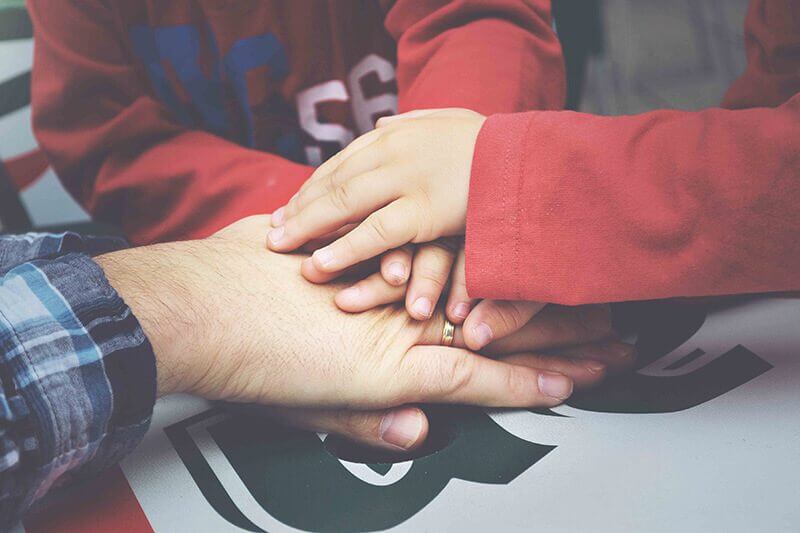Estate Planning
Love Much. Dream Big. Plan Well.
Have you ever thought, “I don’t have enough assets to need an estate plan”? The truth is, nearly all estates – big or small – need a plan. That’s because an estate plan does more than protect your assets. A well-thought-out plan helps answer the following questions:
- How do I want to be treated in the event of incapacity?
- What happens to my children if I and / or my spouse do not make it home today?
- What happens to my estate (home, pets, car, bank account, 401(k)) if I am no longer here?
An estate plan means your family and friends won’t have to guess at your wishes. It also keeps your estate out of probate, helping ensure your goals are fulfilled by a person of your choosing – not the courts. So, regardless if you’re a family with six children, or single with a passion for the arts, estate planning is right for you.
At Snyder Law, we can help with everything from drafting a simple will, to sophisticated estate planning for multi-generational trusts, complex family structures, families with special needs children, international families, and more. Our approach is collaborative and personal. We work 1:1 with you to determine your needs, values, goals and dreams. We then tailor our planning solutions to ensure those people and causes you love will be taken care of, always – financially, and with a lasting legacy of respect.
While the only way to determine the planning elements right for you is to meet you and talk about your story, we invite you to call us at (949)333-3702 to tell us about your particular needs. We’re also available to answer any general questions you may have about working with an estate planning attorney.


Want to work together? We would love to hear from you.
Parents of Minor Children
You don’t need to be wealthy to plan for your child’s well-being.
For parents with young children, planning often has more to do with protecting the well-being of your children than with protecting your assets.
No one wants to think about a future without them in it. But, as a parent, planning for that possibility is the single-most important thing you can to do protect your children in the wake of tragedy. A thoughtful, well-crafted estate plan answers one critical question:
What happens to your children if you
and / or your spouse do not make it home today?
At Snyder Law, we can give you the peace of mind that comes from knowing your children are protected in the event of emergency, incapacity, or death. Knowing they will be raised someone of your choosing, in a way that reflects your values. Critical items included in our estate plans to protect your children include:
- Designation of Temporary Guardians, in case of emergency
- Designation of Permanent Guardians, in case of death or permanent disability
- Confidential documentation of persons you would not want to serve as Guardians
- Child’s Medical Power of Attorney, designating those persons you authorize to make healthcare decisions for your minor children if you are unavailable

Special Solutions for Single Parents
If you have minor children, and are single, divorced, or separated, you need a special set of estate planning directives in place to secure your child’s well-being. In addition to designation of guardians, your estate plan should include:
- Living Trust or Testamentary Trust, restricting access to the money you have set aside for your children – including life insurance policies. This ensures individuals like an ex-spouse or untrustworthy siblings cannot use those funds for their own purposes.
- Durable Power of Attorney, designating a trusted individual to manage your finances in the event of incapacitation
- Advanced Health Care Directive, designating those persons you authorize to make healthcare decisions for you in the event of incapacitation
Single, No Children
Your Legacy, Your Way
Your niece is the sparkle in your day. You support the Susan B. Komen foundation, in honor of your mother. You plan to cash in some of your Disney stock to pay for your cousin’s college education. Without a solid estate plan, the likelihood of your assets going to those people and foundations you cherish is unlikely. And none of it will be protected from taxes.
Single individuals, without children, have the highest risk of losing their voice in event of catastrophe. Without an estate plan, there is no one with the legal capacity to drive the right answers to these questions:
What are my wishes in event of incapacity?
What happens to my estate if I am no longer here?
Your estate plan should ensure you are treated with dignity and respect for your wishes in the event of incapacity. And, it should ensure your legacy lives on in a way that would make you proud. Critical items we address in estate plans for single individuals include:
- Advanced Medical Directive, authorizing an individual to make healthcare decisions if you become incapacitated
- Durable Power of Attorney, designating a trusted individual to manage your finances in the event of incapacitation
- Designation of Beneficiaries, ensuring your 401(k), IRA, bank accounts, etc. have the correct beneficiaries listed, and updated regularly
Single individuals, without children, have the highest risk of losing their voice in event of catastrophe
Blended Families
Cutting through the complexity
For parents with young children, planning often has more to do with protecting the well-being of your children than with protecting your assets.
No one wants to think about a future without them in it. But, as a parent, planning for that possibility is the single-most important thing you can to do protect your children in the wake of tragedy. A thoughtful, well-crafted estate plan answers one critical question:
What happens to your children if you
and / or your spouse do not make it home today?
At Snyder Law, we can give you the peace of mind that comes from knowing your children are protected in the event of emergency, incapacity, or death. Knowing they will be raised someone of your choosing, in a way that reflects your values. Critical items included in our estate plans to protect your children include:
- Designation of Temporary Guardians, in case of emergency
- Designation of Permanent Guardians, in case of death or permanent disability
- Confidential documentation of persons you would not want to serve as Guardians
- Child’s Medical Power of Attorney, designating those persons you authorize to make healthcare decisions for your minor children if you are unavailable
